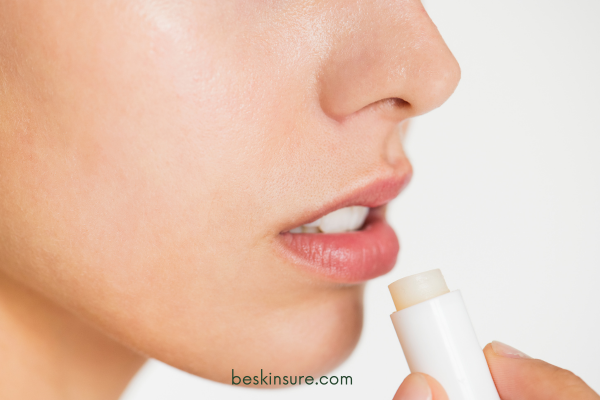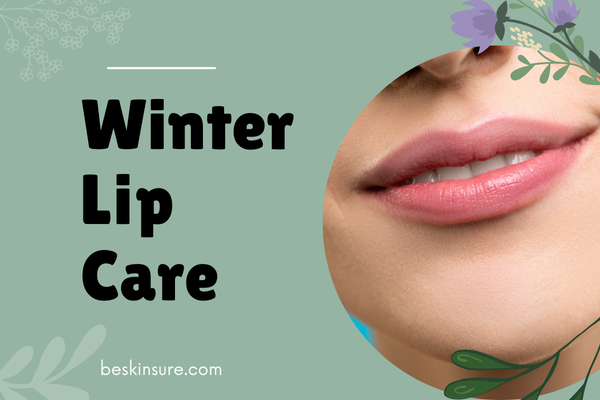As the winter months approach, we often focus on bundling up and layering our skin care, but many forget to give special attention to their lips. Cold weather can be harsh on our lips, leading to dryness, cracks, and even peeling if they aren’t well protected.
Understanding winter lip care is essential for keeping your lips soft, smooth, and healthy through the colder months. In this article, we’ll dive into the causes of winter lip damage, share preventive tips, and suggest products and routines for the best winter lip care.
1. Why Lips Are So Vulnerable in Winter

Our lips are more sensitive than most other areas of the skin. Unlike the rest of our skin, lips don’t have oil glands, which means they can’t produce natural oils to keep them moisturized. The thinness of the skin on our lips also makes them more vulnerable to the cold, dry air. In winter, exposure to cold temperatures, dry indoor heating, and wind only increases the chances of cracked and peeling lips.
2. The Importance of Moisture Retention in Winter Lip Care
During the winter, the lack of humidity in the air pulls moisture from our skin and lips. Moisture retention becomes the key to maintaining soft, smooth lips. Without a protective layer, moisture can easily escape, leaving lips dry, chapped, and uncomfortable. Using the right products and establishing a consistent winter lip care routine can make all the difference in preventing this moisture loss.
3. Common Causes of Chapped Lips in Winter
While cold weather is the primary culprit, several other factors can worsen the state of your lips in winter:
- Wind exposure: Cold winds can strip the skin of essential moisture.
- Indoor heating: Heating systems lower indoor humidity, drying out your lips and skin.
- Frequent lip licking: Saliva evaporates quickly, leaving lips even drier.
- Dehydration: Cold weather can reduce our thirst, leading to unintentional dehydration.
Understanding these causes can help in adopting a proactive approach to winter lip care.
4. Tips for Effective Winter Lip Care
The right preventive measures can help you maintain smooth and hydrated lips. Here are some essential winter lip care tips:
1) Stay Hydrated
Hydration isn’t just about using products; it also involves drinking plenty of water. When your body is well-hydrated, your skin and lips retain more moisture, which is crucial in winter.
2) Avoid Licking Your Lips
Licking might feel like it gives temporary relief, but it actually makes your lips drier. Saliva evaporates quickly, leaving lips feeling even more parched. Avoid this habit, and instead, reach for a lip balm.
3) Exfoliate Regularly
Exfoliating is an excellent way to remove dead skin cells and allow for better absorption of lip balms. Use a gentle lip scrub once or twice a week, especially if you’re experiencing peeling. Look for scrubs with fine grains or try DIY options, like a sugar and honey mix.
5. Choosing the Right Lip Balm for Winter Lip Care
Not all lip balms are created equal, and choosing the right one is crucial for effective winter lip care. Here’s what to look for:
1) Ingredients to Look For
- – Beeswax or shea butter: These create a protective barrier on the lips, locking in moisture.
- – Hyaluronic acid: Known for its moisturizing properties, hyaluronic acid helps in retaining water.
- – Petroleum jelly: A classic ingredient, petroleum jelly is highly effective in sealing moisture.
2) Ingredients to Avoid
- – Fragrances and flavors: These can cause irritation and are best avoided in winter lip care.
- – Menthol: Often found in minty balms, menthol can dry out lips, exacerbating the problem.
6. How to Layer Lip Products for Maximum Hydration

Just like with skincare, layering products can provide additional hydration and protection for lips. Start with a hydrating lip balm, then top it with a protective product like petroleum jelly or a beeswax-based balm. This layering method traps moisture, giving you an added defense against winter dryness.
7. Nighttime Lip Care Routine
Our skin repairs itself overnight, making a good nighttime lip care routine essential for winter. Before bed, apply a hydrating lip mask or a thicker balm to help keep your lips moisturized all night. Look for masks that contain nourishing ingredients like vitamin E or ceramides for extra care.
8. Diet and Nutrition’s Role in Winter Lip Health
A diet rich in omega-3 fatty acids, vitamin E, and antioxidants can help keep your lips (and skin) healthy. Foods like nuts, seeds, avocados, and leafy greens support moisture retention and prevent dryness.
9. Protecting Lips When Outdoors
Whenever you head outdoors, protect your lips with a balm that includes SPF. Even in winter, UV rays can cause damage and make lips more prone to chapping. Reapply every two hours if you’re spending extended time outside.
10. Natural Remedies for Winter Lip Care
If you prefer natural products, here are some simple remedies for winter lip care:
- – Coconut oil: It’s a fantastic natural moisturizer with antibacterial properties.
- – Aloe vera gel: Known for its healing properties, aloe can help soothe dry, cracked lips.
- – Honey: As a natural humectant, honey locks in moisture and adds a protective barrier on the lips.
FAQs About Winter Lip Care
1. How often should I apply lip balm in winter?
Apply lip balm every 2-3 hours when you’re outdoors or in dry indoor environments. Reapply whenever your lips feel dry to maintain moisture throughout the day.
2. What type of lip balm is best for winter?
Choose lip balms with hydrating and protective ingredients like beeswax, shea butter, or petroleum jelly. Avoid balms with fragrances or menthol, which can dry out your lips further.
3. Can I exfoliate my lips every day in winter?
Exfoliating daily can be too harsh, especially during winter. Limit lip exfoliation to once or twice a week to avoid over-stripping natural oils and causing irritation.
4. Is SPF important for winter lip care?
Yes, SPF is essential year-round. Even in winter, UV rays can damage your lips, so choose a lip balm with SPF if you’re spending time outdoors.
5. Why do my lips feel dry even when I drink enough water?
External factors like cold, dry air and indoor heating can still cause dryness even if you’re hydrated. Use a high-quality lip balm to lock in moisture and protect your lips from environmental stressors.
6. Are natural oils effective for winter lip care?
Yes, natural oils like coconut oil, olive oil, and almond oil are excellent for moisturizing lips. They form a barrier that prevents moisture loss and keeps your lips soft and hydrated.
7. What should I do if my lips are already cracked and peeling?
Focus on gentle care. Avoid exfoliating cracked lips, and apply a thick layer of a healing balm, like one with petroleum jelly or shea butter, until your lips heal.
8. Can dehydration make my lips worse in winter?
Absolutely. Staying hydrated is important year-round, as dehydration can lead to dryness in both your skin and lips. Drink water regularly to support overall skin health.
9. Should I avoid matte lipsticks in winter?
Matte lipsticks can be drying, so if you prefer matte finishes, apply a hydrating lip balm first. Alternatively, opt for moisturizing lip products during winter to prevent excessive dryness.
10. How can I prevent my lips from getting chapped during outdoor winter activities?
Before heading outside, apply a thick layer of lip balm with SPF, and reapply as needed. A scarf or mask can also help protect your lips from wind and cold temperatures.
Conclusion
Incorporating these winter lip care tips into your routine can help prevent the uncomfortable, cracked, and peeling lips that are so common in colder months. From staying hydrated to choosing the right products and practicing preventive care, a few simple changes can make a big difference. By caring for your lips throughout winter, you’ll enjoy smooth, soft, and healthy lips all season long. Prioritizing winter lip care is the key to a confident smile and comfortable lips, no matter how low the temperatures drop.

